What is Google Search Console and how can it help your small business?
Oct 15, 2025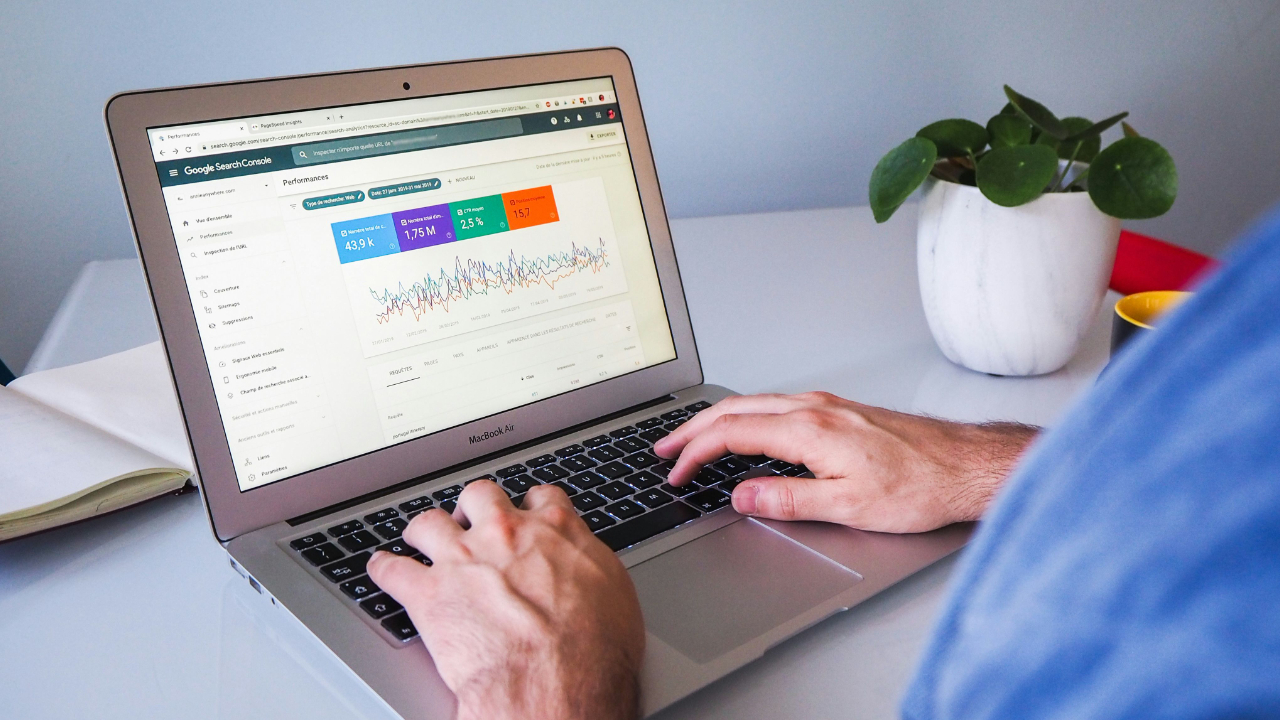
By Lorna Walker
What is Google Search Console?
I've written before about the importance of having Google Analytics up and running on your website, but Google Analytics isn't the only free tool that Google offers to help you improve your website's performance. Google Search Console is perhaps less well-known than Google Analytics, but it can be just as valuable for your small business.
Google Search Console is a free suite of tools and reports that Google provides to help you understand how your website performs in Google search results. Think of it as your direct line of communication with Google about your website's health and performance.
Unlike Google Analytics, which shows you traffic from all sources (social media, email campaigns, paid adverts), Google Search Console focuses entirely on organic search. This means it shows you exactly how people find your website through Google searches, what they're searching for, and how well your pages are performing in search results.
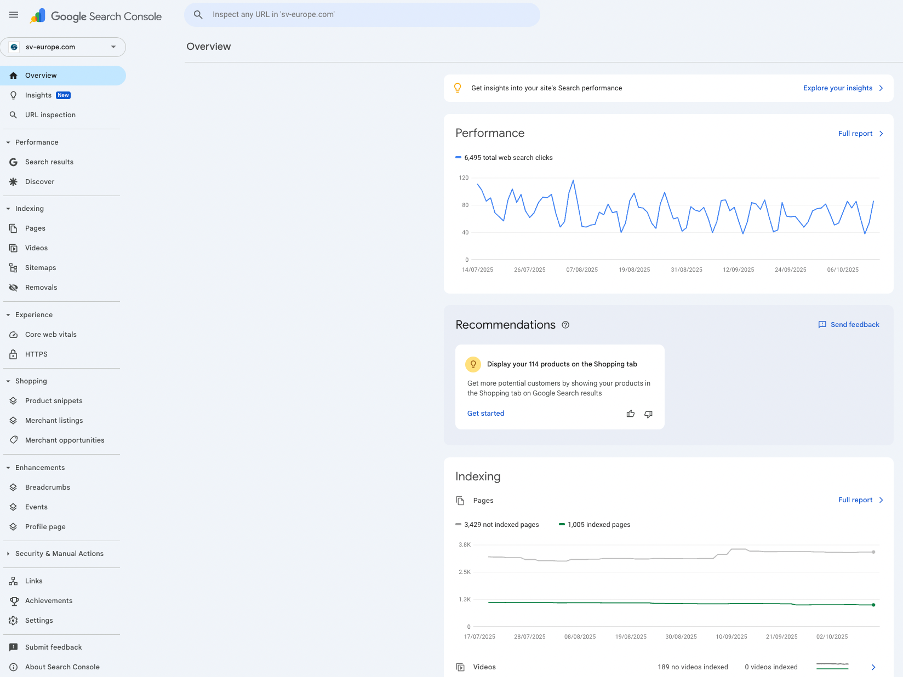
Why Google Search Console matters for small businesses
As a small business owner, every visitor to your website matters. Organic search (people finding you through Google without paid adverts) is one of the best sources of high-quality traffic because these visitors are actively looking for what you offer.
Google Search Console helps you:
- Understand your customers better - See exactly what people are searching for when they find your business
- Spot opportunities - Discover which pages are almost ranking well and could benefit from small improvements
- Fix problems before they hurt your business - Get alerts about technical issues that could prevent customers from finding you
- Compete more effectively - Use data to make smart decisions about your website content and structure
- Save money on marketing - Improve your free organic search traffic rather than relying solely on paid advertising
The best part? It's completely free, and you don't need to be a technical expert to use the most important features.
How to set up Google Search Console on your website
Setting up Google Search Console does require adding a small piece of code to your website, but don't let this put you off. The process has become much simpler in recent years, and most website builders now make this straightforward.
Here's what you'll need:
- A Google account (the same one you use for Gmail)
- Access to your website's admin area or a developer who can help
- About 15 minutes to complete the setup
We've created a detailed video guide for WordPress users that walks you through the entire process step by step.
Important: Google Search Console can only start collecting data once you've connected it to your website. The sooner you set it up, the sooner you'll have valuable insights to help improve your business's online performance.
Essential Google Search Console features
Overview dashboard
When you first log into Google Search Console, you'll see the Overview dashboard. This gives you a quick snapshot of your website's performance with the most important information at a glance.
The overview shows:
- Performance summary - How many people clicked through to your website from Google search results
- Coverage status - How many of your pages Google has successfully added to its index
- Recent issues - Any problems that need your attention
Search performance reports
The Search Performance report is where Google Search Console really shines for small business owners. This section shows you exactly how your website appears in Google search results and how people interact with your listings.
The four key metrics you'll see are:
- Clicks - The number of times someone clicked through to your website from a Google search result
- Impressions - How many times your website appeared in someone's search results (even if they didn't click)
- Click-through rate (CTR) - The percentage of impressions that resulted in clicks
- Average position - Where your website typically appears in search results (position 1 is at the top)
You can view this data by:
- Queries - What people searched for to find you
- Pages - Which pages on your website are performing best
- Countries - Where your website visitors are located
- Devices - Whether people find you on mobile, desktop, or tablet

Practical tip for small businesses: Start by looking at the "Queries" tab to understand what people are actually searching for when they find your business. You might be surprised to discover that customers use different terms than you expect!
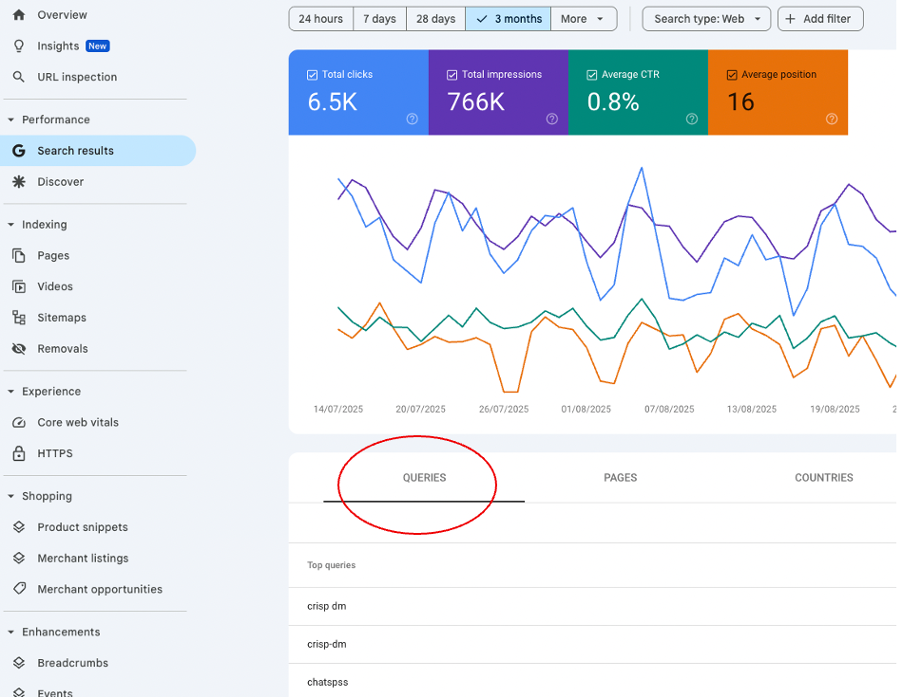
New 24-hour performance view
One of the most exciting updates to Google Search Console in 2025 is the new 24-hour performance view. Previously, data could take up to two days to appear, but now you can see much more recent information about your website's performance.
This new feature is particularly useful for:
- Tracking the immediate impact of new content or website changes
- Understanding daily traffic patterns
- Quickly spotting and responding to performance issues
- Measuring the success of time-sensitive campaigns or promotions
You can even export hourly data in Google Sheets, Excel, or CSV formats, making it easier to create custom reports for your business.
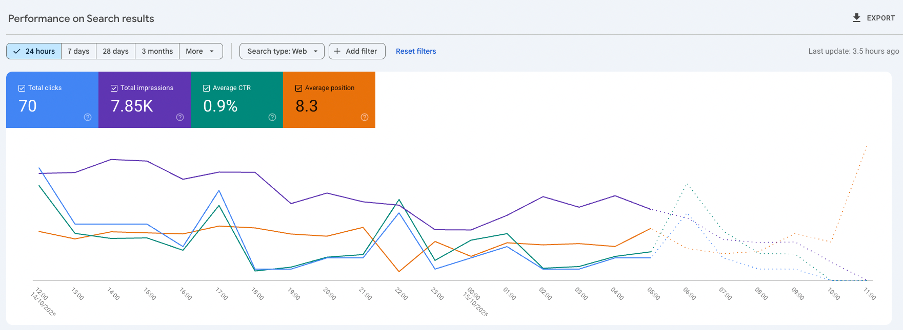
Core Web Vitals and page experience
Core Web Vitals measure how fast and user-friendly your website is. Google uses these metrics as ranking factors, so they directly impact how well your website performs in search results.
The three key measurements are:
- Largest Contentful Paint (LCP) - How quickly the main content loads (should be under 2.5 seconds)
- Interaction to Next Paint (INP) - How quickly your website responds when someone clicks or taps (should be under 200 milliseconds)
- Cumulative Layout Shift (CLS) - How stable your page is while loading (content shouldn't jump around unexpectedly)
The 2025 updates to the Core Web Vitals report include more detailed historical trends and clearer warnings when your website's performance is declining. This makes it easier for small business owners to spot and address issues before they impact search rankings.
For small businesses: Don't worry about achieving perfect scores. Focus on fixing any issues marked as "Poor" first, as these have the biggest impact on your visitors' experience and your search performance.

Submitting sitemaps to Google
A sitemap is like a map of your website that you can submit to Google to help it understand your website's structure and find all your pages. While Google will eventually discover your website on its own, submitting a sitemap speeds up this process significantly.
Why submit a sitemap?
- Helps Google find and index new pages faster
- Ensures important pages aren't missed
- Particularly important if your website has many pages or complex navigation
- Completely free and takes just a few minutes
Most modern website builders (including WordPress with SEO plugins like Yoast) automatically create sitemaps for you. The sitemap is usually found at yourwebsite.com/sitemap.xml
We've created a helpful video guide showing exactly how to create and submit your sitemap.
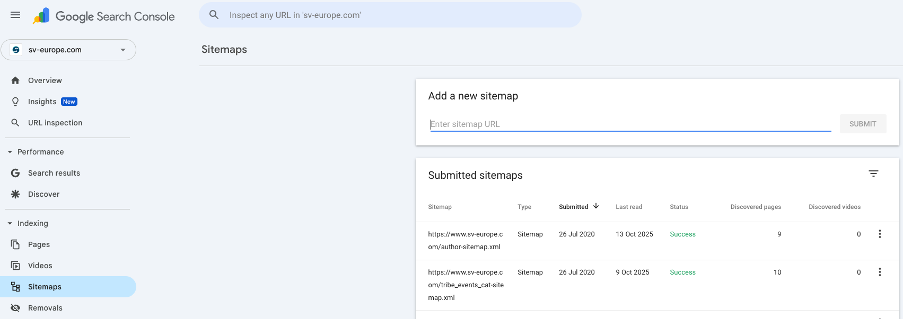
URL inspection tool
The URL Inspection tool lets you check the status of individual pages on your website. Simply enter any page URL from your website, and Google will tell you whether it can access and index that page.
This tool is invaluable for:
- Checking if new pages have been found by Google
- Diagnosing why specific pages aren't appearing in search results
- Testing how Google sees your page (useful for troubleshooting)
- Requesting that Google re-crawls updated pages
The 2025 updates include clearer explanations of any issues found and more specific guidance on how to fix them.

Understanding your link profile
The Links report shows you which other websites are linking to yours and how your own pages link to each other. Links from other reputable websites can significantly improve your search rankings.
The report is divided into two sections:
- External links - Other websites linking to you (these help build your authority)
- Internal links - How your own pages link to each other (helps Google understand your website structure)
For small businesses, focus on building relationships with local business directories, suppliers, and customers who might naturally link to your website.
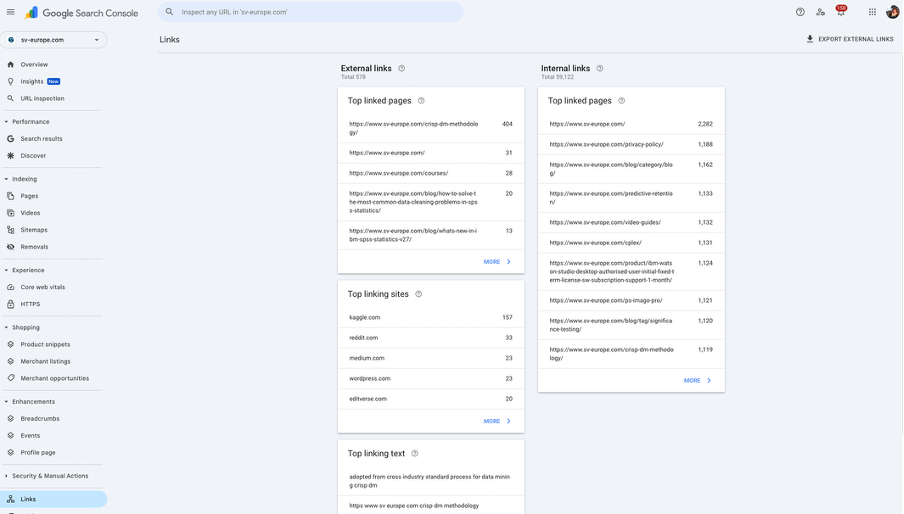
Getting started: your first steps
Once you've set up Google Search Console, here's what to do first:
- Wait for data to accumulate - Give it at least a week to collect meaningful information
- Check the Overview - Look for any urgent issues that need attention
- Submit your sitemap - Help Google find all your pages more quickly
- Explore the Performance report - Start with the "Queries" tab to understand how people find you
- Set up email alerts - Get notified automatically if Google finds problems with your website
Recommended routine: Check your Google Search Console account once a week. Look for new search terms people are using, monitor your click-through rates, and address any issues that appear.
Common mistakes to avoid
- Don't obsess over rankings - Focus on trends rather than daily fluctuations
- Don't ignore mobile performance - Most of your visitors likely use mobile devices
- Don't forget to fix issues - Use the "Start tracking" feature when you've addressed problems
- Don't make major changes based on short-term data - Wait for at least a month of data before making significant decisions
- Don't panic over algorithm updates - Focus on creating helpful content rather than chasing algorithm changes
Next steps and further learning
This guide covers the essential features of Google Search Console, but there's much more functionality available as your business grows and your needs become more sophisticated.
To learn more:
- Explore Google's own Search Console training videos
- Join the Google Search Console Community for help with specific issues
- Talk to us about how we can help you
Remember, Google Search Console is a powerful tool that can significantly impact your business's online success. Start with the basics, build your understanding gradually, and don't be afraid to experiment with different approaches to see what works best for your specific business.
About the author
Lorna has been working in digital marketing for more than 20 years now, both running campaigns for her own businesses as well as working on behalf of clients. She particularly enjoys helping clients learn how to take control of different aspects of their digital marketing themselves, making the best use of the tools that are available to them and getting them out from under reliance on developers and agencies to do things for them, empowering them to do these things themselves.
Struggling to implement these strategies in your own business? You're not alone. Join our training webinars designed specifically for small and medium businesses ready to take their digital marketing to the next level. View our complete list of upcoming topics and training sessions.

